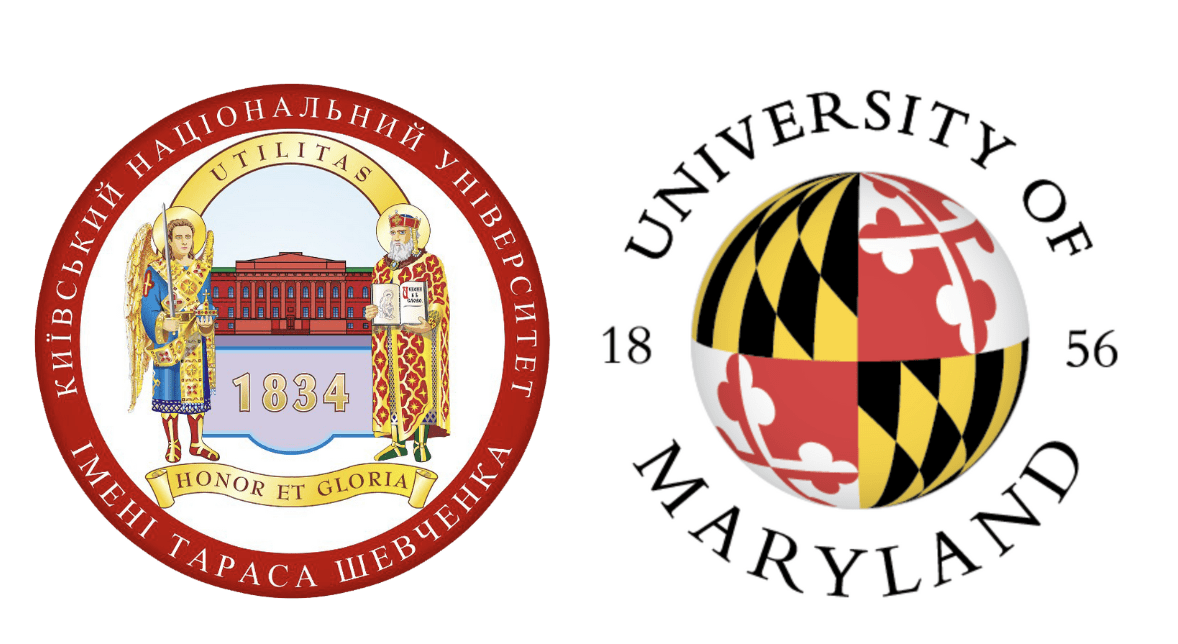
On April 29, 2024, Global Classrooms course “Borders and Memory Making in Times of War” hosted their end-of-year symposium, showcasing student projects developed across borders and time zones, amid a global conflict. The aim of the course, run by co-professors Piotr Kosicki from the University of Maryland (UMD) and Serhii Humennyi from Kyiv National University (KNU), investigates the shaping of public memory of war in divided places where borderlands are murky or contested.
Associate Vice President for the Office of International Affairs, Ross D. Lewin led opening remarks, noting the extraordinary circumstances that brought this cohort of American and Ukrainian students together. While American students tuned in from the familiar position of their laptops, some Ukrainian students used cellphones to find a stable-enough web connection to join the session ranging from varying locations in Ukraine and elsewhere. Despite their differences, the cohort was able to draw from their communal experiences with online learning during the pandemic to show up for the course.
“We could see that there is a shared baseline between the UMD and the Ukrainian students where they just had to figure out which challenges they’re negotiating, and what the best way to communicate workarounds to those challenges are,” said co-professor Piotr Kosicki.
The dedication of these students across countries to showcase their projects, ranging from memorial site proposals, European Union case studies, textbook entries, educational curriculums and more, was clear to all in attendance. Audience members across affiliations were present, including representatives from Global Classrooms, the Department of History, even visiting Ukrainian Fulbright scholar Olga Gresko. KNU students like Ivan Kochetyhov and Veronika Khodatska both reflected positively on their experiences within the course, cementing the foundational goal of mutual benefit.
“Before, I actually didn't have a view on global learning. Now, I believe that such cooperation is not only a good way to gain knowledge, but also to exchange knowledge and experience, share them with each other, and strengthen relations between participants from different countries,” said Kochetyhov. Additionally, Khodatska shared that, “One of the most important things I gained from this course was the experience of working with a leading American university, which was a unique opportunity in my academic life and future career.”
Through and through, the nature of the symposium itself proved collaborative and informative, with Ukrainian speakers being translated in real-time by course facilitator, Ph.D candidate and Fulbright alumna Viktoriia Savchuk. Following the student presentations, co-professors Kosicki and Humennyi concluded with a reflection of lessons learned and insights gained during the course of the semester. In the face of air raids, power losses and missile strikes, learning rose above—summer courses are actively recruiting students. If you’re interested in a Global Classrooms course of your own, head to our website to see the current offerings.
To find out how to design a global classroom curriculum for your course in partnership with an international partner university, visit our faculty global engagement page.
To learn more about the academic partnership, visit our academic partnerships page.
